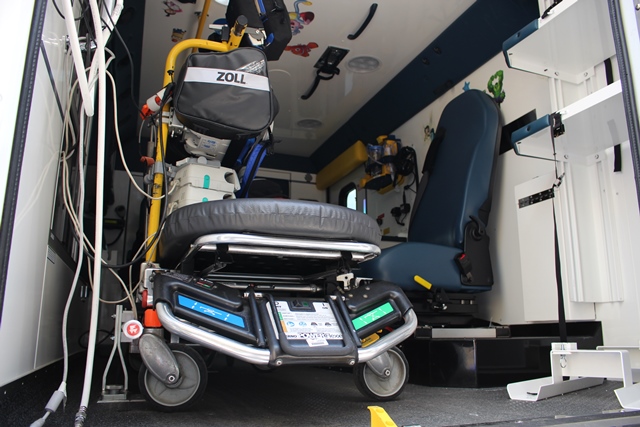By Jonathan Lee
Imagine for a moment you are the parent of a Northern Ontario child with a complex medical history. Put yourself in the shoes of the emergency nurse at a cottage hospital caring for a child who has just been in an accident. Perhaps you relate better to the paediatrician managing a child who has spent several days on the paediatric ward of your hospital. All three of these individuals share two things in common. All three know that much of the province’s specialized paediatric care is centralized and are concerned about how the child for whom they are responsible will make it safely to that specialized care. Ornge, Ontario’s provider of air ambulance and critical care transport, has a solution to the challenges of moving critically ill children: a Paediatric Critical Care Transport Team. Ornge’s Paediatric Team has a combination of capabilities, composition and reach that makes them unique within the province.
Recognizing the benefits that children receive from specialized care, Ornge has worked hard over the last number of years to improve their paediatric capabilities. One of the first steps was the addition of a group of paediatricians that had a background in either paediatric emergency medicine or critical care, as well as an interest in transport. One of them is available around the clock through Ornge’s Operations Control Centre to provide medical oversight to every child under Ornge’s care.
Paramedics within the air ambulance system in Ontario have a history of providing high quality care to high acuity patients, but in order to add specific paediatric expertise, Ornge adopted an interdisciplinary model for paediatric transport. In 2010, Ornge recruited Registered Nurses with a wide range of backgrounds that includes both paediatric and neonatal intensive care, as well as neonatal transport and anaesthesia assistant. Once hired, the nurses began the exhaustive process of cross training as Primary Care Paramedics. This allowed the nurses to function as part of an ambulance crew in Ontario. Pairing specialized nurses with experienced Critical Care Paramedics provided a novel team composition that brings hospital expertise to the out of hospital environment.
A number of highly skilled hospital-based teams are available to service paediatric transport in Ontario, but Ornge occupies a unique position within this group. Ornge provides the only paediatric team that operates as part of an ambulance service. This means the team is able to respond immediately to any request for service that occurs within the Greater Toronto Area. Additionally, being based close to Pearson Airport allows the team to be easily dispatched on helicopter or fixed-wing aircraft for paediatric patients across Ontario, whichever option is most suitable for the patient. The ability to operate seamlessly and self-sufficiently gives the Ornge paediatric team an unmatched response time as well as the ability to service any healthcare facility in the province of Ontario.
Since 2011, the team has transported over 2,000 patients. From the Golden Horseshoe to the James Bay Coast, from car accidents to cancer care; Ornge’s approach to paediatrics is as unique as the population they serve. Whether you are a rural parent, an ER nurse, or a paediatrician, the Ornge Paediatric Critical Care Transport Team is available to provide the highest quality, family and patient centered care possible.
Jonathan Lee is a Paediatric Critical Care Paramedic with ORNGE.




